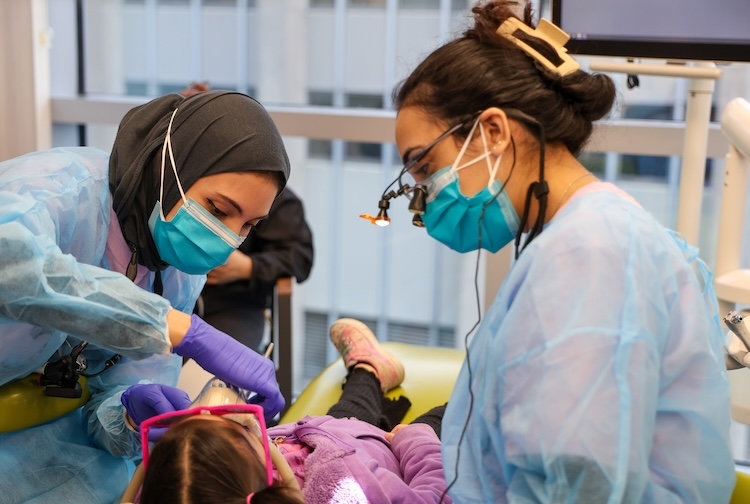When trying to lose weight on your own doesn’t work, VCU Health has options
VCU Health surgeon says weight loss surgery can help patients struggling with obesity and related medical conditions, such as Type 2 diabetes.
October 01, 2025 Weight loss surgery is another alternative for patients struggling to maintain a healthy weight. (Getty Images)
Weight loss surgery is another alternative for patients struggling to maintain a healthy weight. (Getty Images)
By Sara McCloskey-Nieves
Losing weight on your own can be a challenge. With so many diets, supplements and lifestyle hacks trending online and in TV commercials – it can be just as hard to know what works and where to start.
Luckily, you have options. From the latest advancements in medicine to minimally invasive surgeries, VCU Health’s multidisciplinary team of weight loss experts can help you achieve optimal health and wellness.
One of those experts is bariatric surgeon Guilherme S. Mazzini, M.D., PhD., of VCU Medical Center’s nationally recognized surgical and medical weight loss clinic. He joined the Healthy at VCU Health podcast to share how the weight loss surgery team works together with patients to determine the best, personalized options to meet their weight loss goals.
How does VCU Health's weight loss surgery team help patients to figure out what treatment options are best for them?
At VCU Health, we provide all the support. We have a multidisciplinary team – with therapists, nurse practitioners, dietitians, doctors and a whole health system – here to guide them through the process. Most patients, when they get to us, don't have an idea of what this process is going to look like. We are here to show them what the options are and to make it easy for them to understand and make a decision. There is no judgement.
First, we try to understand why a patient gains weight and how that weight interferes with their daily life and health. Then, we try to come up with an individualized treatment plan, trying to find the best option for them – and this can really vary. It always involves some sort of lifestyle changes; we try to reroute things that went wrong when they gained weight from both physical and psychological perspectives. Our team has a wide spectrum of approaches we can offer them from diet and medications to surgery.
Is bariatric surgery the last option for someone with obesity to consider?
No, not really. We have specific criteria for patients to be considered for bariatric surgery. We only offer it for patients who have what we call severe obesity, so their body mass index (BMI) needs to be above 35 to qualify. In some cases, patients with BMI over 30 already qualify.
It's one option – it's not the last one, and it's the most effective option for patients with severe obesity.
How does bariatric surgery work?
There's around 70 years of advancements in this field. In the beginning surgeons were trying to only reduce the stomach and make patients eat less and feel full. However, that is not the only way surgery works.
With research, we noticed that weight loss surgery triggers a complete change in how the body reacts to food, and how the hormones signal our brain and pancreas – to the point that, nowadays, we call this “Metabolic Surgery.” We completely change how the body’s metabolism responds to meals, and it happens through mechanisms that involve change in hormones like glucagon-like peptide-1 receptors (GLP-1s). That same hormone that is used in these new weight loss medications is naturally stimulated by surgery in our bodies.
The history of weight loss surgery is attached to VCU Health Sciences and VCU Health as well. We had pioneers in this field who have been doing research on these procedures and developing new techniques for years and are experts in the field. So far, we’ve had almost 7,000 successful cases done in our hospital since 1974.
How can weight loss medications be paired with bariatric surgery?
We've been waiting for effective weight loss medications for years, and the new ones are called GLP-1 receptor agonists. These substances reduce appetite and make patients feel full, leading to significant weight loss in most of the patients.
We work with those medications alongside surgery as well. We offer them for our patients that need to lose some weight or improve their health before the procedure and even afterward, since some patients may regain some weight.
How can bariatric surgery help people recover from other illnesses, like diabetes?
It's not the number on the scale we’re trying to treat – we're treating all the illnesses that come with obesity to make patients healthier.
One of these conditions is Type 2 diabetes, which can have a negative impact on patient's health, lifespan and quality of life. These patients can develop heart disease and are at higher risk of strokes and vision loss. Bariatric surgery has a huge impact on that, and most patients are not aware that it could be an option for treating these conditions.
Studies show that procedures like gastric bypass and sleeve gastrectomy led to diabetes remission in about 70% of patients. That means most of these patients could stop taking diabetes medications. This results in significantly lower chances of these patients developing heart attack, chronic kidney disease and chronic heart diseases. In fact, bariatric surgery was shown to increase the patient’s life span. With bariatric surgery, patients have also improved other health conditions, such as fatty liver disease, high blood pressure, sleep apnea and acid reflux.




